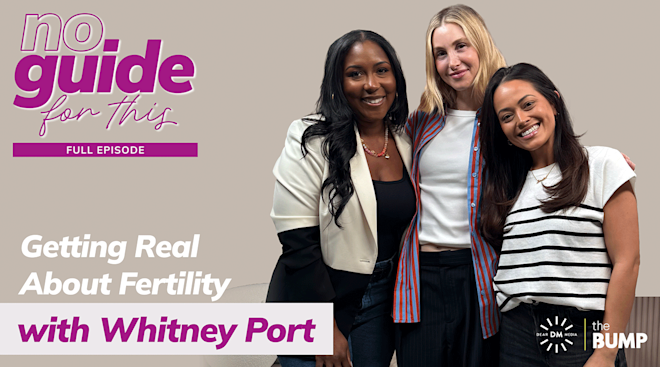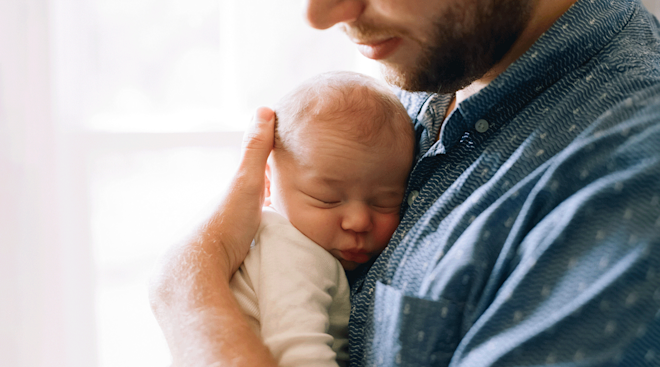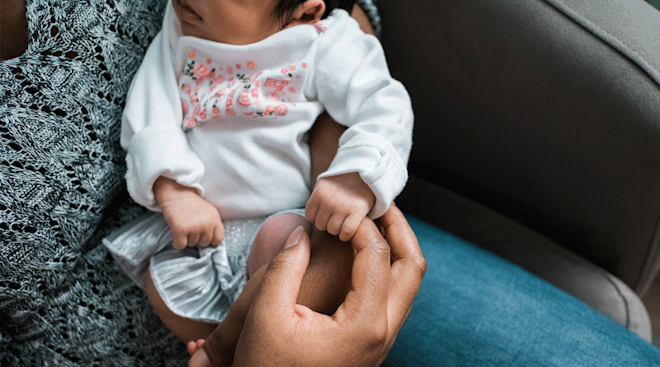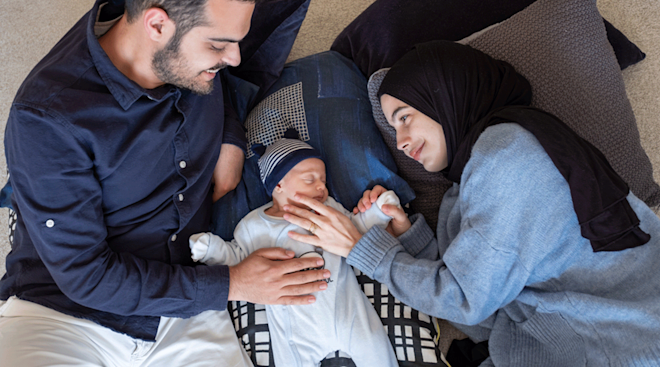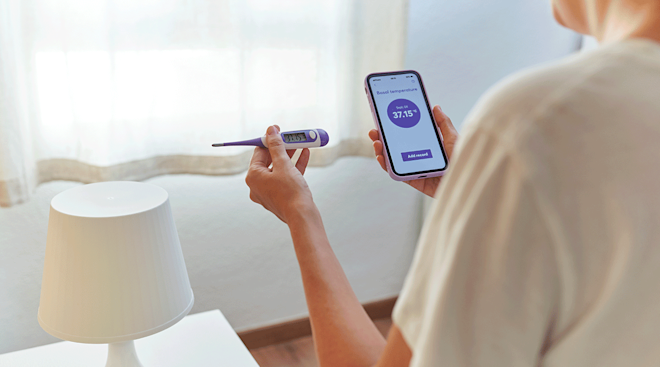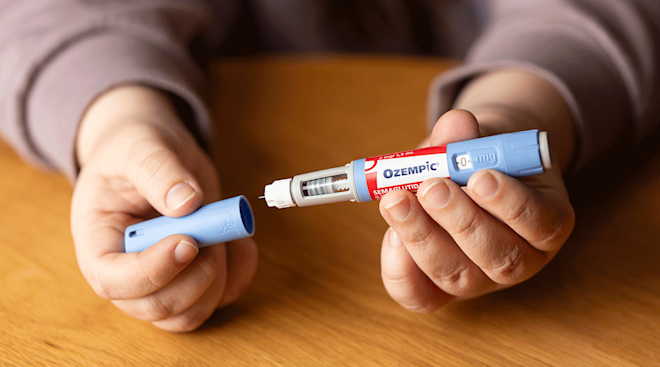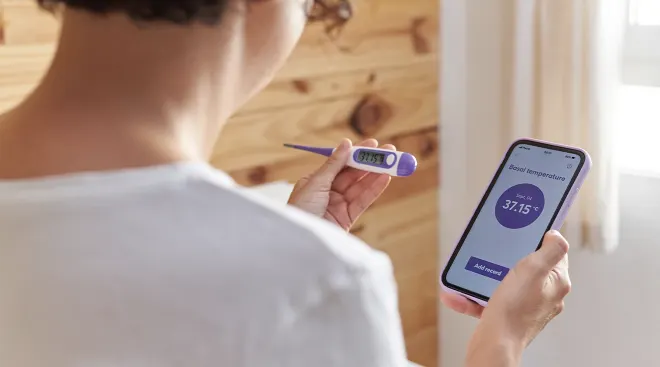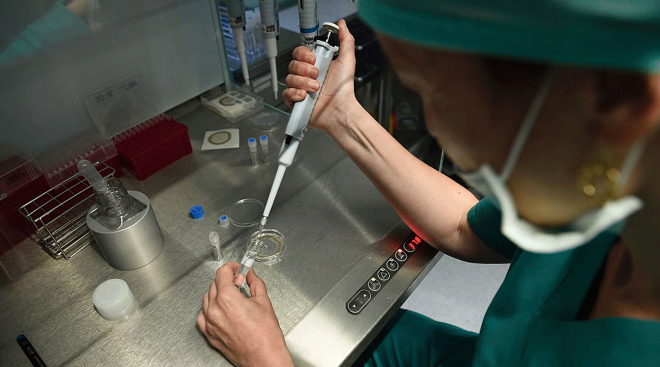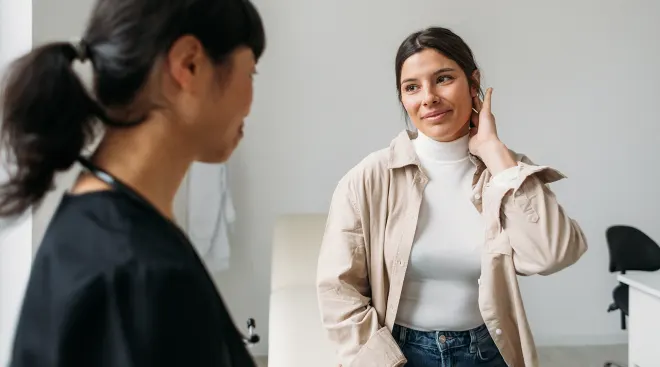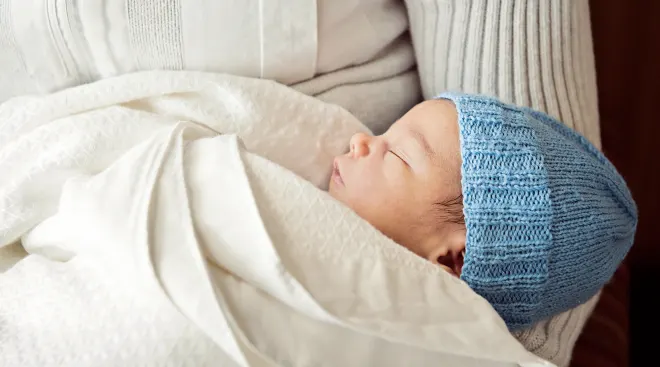Why Black People Face Significant Barriers in Fertility Care
There’s a commonly held belief among Black people and other marginalized populations that anything requiring privilege is inherently “for white people.” This can refer to things like private school, certain beauty and wellness treatments or living in particular neighborhoods. This mentality has roots in internalized racism and our lived experiences. And it can have major implications when it comes to medical care and seeking fertility help.
This was evident in the recent Black Fertility Matters survey by CCRM Fertility, one of the nation’s leading clinics. Out of the 1,000 Black men and women surveyed, 57 percent said they believe Black people are less likely to seek fertility treatment, and 26 percent said they experienced racial or cultural bias when seeking fertility treatment.
In a media release about the survey, Stephanie Marshall Thompson, MD, a reproductive endocrinology and infertility specialist at The Institute for Reproductive Medicine and Science and member of the CCRM Fertility network says that "the days of postponing conversations addressing racial disparities in fertility care are over.”
There are multiple reasons why Black people might be less likely to seek fertility treatment. For starters, fertility care tends to be seen as a resource for the privileged few. The cost of fertility treatments can amount to well over $10,000 out of pocket—or a lot more, depending on the services received. (Prices for in vitro fertilization are particularly sky-high.) Research shows that women who are seeking help to become pregnant tend to be white, as well as over 35, higher income and privately insured.
Financial barriers aside, there remains a massive representation issue, which extends to other areas of health care for Black people. Among those surveyed by CCRM, 46 percent said they don’t feel there’s adequate representation and inclusivity in the fertility treatment industry for Black people. At the same time, 48 percent said they feel more comfortable seeking fertility treatment from someone of the same ethnicity—underscoring the need for more Black fertility specialists.
Black people may feel shut out of fertility care because of the pervasive stereotypes about the Black body and Black sexuality, which have wound their way into not only the medical industry but also individual thinking. “Black women already face stigma when it comes to fertility due to the myth of the overly fertile Black woman,” says Deborah Ikhena-Abel, MD, a reproductive endocrinologist in Austin, Texas, and fertility specialist at Kindbody, a fertility and family-building care clinic specializing in accessibility and affordability. “These myths sometimes lead to Black patients being referred to a fertility specialist later than their counterparts.”
This racist assumption about fertility widens the already massive gap in care that has led to the Black maternal health crisis. Not only can it delay proactive reproductive health efforts, but it can create a layer of shame around talking about fertility issues, leaving many people feeling isolated.
Statistics paint a different picture of Black fertility. Research shows that Black women have a higher rate of infertility (7.2 percent) than white women (5.5 percent) and are less likely to have successful IVF outcomes, even when controlling for socioeconomic factors. “Certain conditions disproportionately affect Black women and can lead to infertility,” says Ikhena-Abel. “These include uterine fibroids, which are benign tumors of the uterus, and polycystic ovarian syndrome (PCOS), a hormonal disorder causing enlarged ovaries with cysts.” She says early detection is the best defense.
Ikhena-Abel explains that representation can affect outcomes in a significant way. “When patients don’t feel heard or when their concerns aren’t acknowledged and addressed this can lead to mistrust, communication gaps and, potentially, misdiagnosis or underdiagnosis of specific conditions, which in turn leads to a decreased likelihood of success or to patients stopping treatment before their goal of having a healthy baby is achieved.”
In response to growing awareness of the racial disparities in fertility care, there’s an effort underway to better train and educate medical providers. The need for culturally aware and trauma-informed care is finally pushing the medical industry to make sweeping changes to its patient-care approach. “The American Board of Obstetrics and Gynecology now includes training on health disparities and bias,” says Ikhena-Abel. “We’re seeing more initiatives aimed at increasing the number of doctors of color in various specialties, including reproductive medicine.”
Another piece of the puzzle is improving holistic care. Over the past decade, there has been increased evidence that services such as doula care help to improve maternal health outcomes for communities of color.
“I think having companionship through midwifery care, and having an extra set of eyes and ears is key,” says Latham Thomas, a midwife, doula and founder of Mama Glow, a global maternal education network. Having fertility doula support “to help you navigate the challenges, the indignities and the stress of navigating infertility” can help, she adds. A midwife or doula can see the body and mind from a more holistic perspective, which could help you make better lifestyle decisions when preparing for pregnancy.
Instead of leaving Black people to navigate a daunting and deeply personal issue such as fertility alone, patients and providers are demanding change. Breaking the silence around this issue will open up the conversation to improve representation in fertility care and make it more inclusive. Thompson says it’s about time. “The bottom line is as providers we must do better,” she says.
Please note: The Bump and the materials and information it contains are not intended to, and do not constitute, medical or other health advice or diagnosis and should not be used as such. You should always consult with a qualified physician or health professional about your specific circumstances.
Plus, more from The Bump:
Deborah Ikhena-Abel, MD, is a reproductive endocrinologist in Austin, Texas, and fertility specialist at Kindbody, a fertility and family-building care clinic specializing in accessibility and affordability. She received her medical degree from the Geisel School of Medicine at Dartmouth.
Latham Thomas is a midwife, doula and founder of Mama Glow, a global maternal education network.
CCRM Fertility, CCRM Fertility Releases First-of-Its-Kind Survey on Black Fertility, November 2023
KFF, Coverage and Use of Fertility Services in the U.S., September 2020
F & S Reports, Black Infertility and Social Media Engagement: A Mixed Methodology Analysis, November 2021
Health Equity, Effectiveness of an Enhanced Community Doula Intervention in a Safety Net Setting: A Randomized Controlled Trial, September 2023
Learn how we ensure the accuracy of our content through our editorial and medical review process.
Navigate forward to interact with the calendar and select a date. Press the question mark key to get the keyboard shortcuts for changing dates.

































